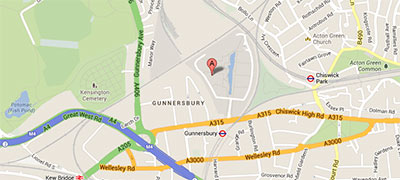Project feasibility & deal assembly
Section Menu
Pages in this section

About:
TREDIC Global Property Development
TREDIC Development:
TREDIC Investment:
Deal Making & Structuring
Professional Services:
Active Global Markets
TREDIC Global Property Development
Joint Ventures & Partnerships:
Infrastructure:
Contact TREDIC:
Location:
TREDIC Corporation
Tel: +44 (0) 203 997 7945
TREDIC Head Office:
Building 3, Chiswick Park,
566 Chiswick High Road,
Chiswick,
London,
W4 5YA,
United Kingdom.
‣ Careers

‣ Location Map: TREDIC London Headquaters
Project feasibility and assembly involves the management of the professional activities that TREDIC undertake to fully evaluate the commercial options available to our partners and clients. This is fundamental to allow the client to determine with informed decision making authority whether the project is feasible and should go ahead or not.
TREDIC typically undertakes and asks the following questions:
1. Seed capital financing strategy: Is there suitable capital to explore the project properly? If not, do we need to source an angel investor or venture capital backer?
2. Sourcing land: Has the land been sourced? What is the ownership situation? Does the principal have any control over it by way of option agreement or outright ownership? Does it need to be purchased? If so, can we secure a “subject to planning” offer i.e. we only have to purchase if we secure the building permits?
3. Land valuation: The land will need to be officially valued, preferably as an RICS red book valuation to satisfy the investment criteria of the banks. This is important whether the land is owned or not. Does a valuation exist already? Is it less than six months old? If not, do we need to commission a revised and/or updated valuation?
4. What is the brief: What is the development idea, the concept? What do we want to achieve? This brief determines in writing the vision of the project and is essential literature for future project stakeholders, such as prospective JV partners, tenants, investors and local authorities.
5. Market research: Research is imperative to understand the dynamics of the market, the competition, the customer base and the demand. An essential element of the research process is also establishing the local country planning framework, and the planning favourability for the proposed type of development in the chosen location.
6. Occupier search and identification: With the seed finance in place, the land under control, the brief created and the market research undertaken, the long list of potential residential, retail and office tenants & investors can be drawn up and the process of pre-canvassing for expression of interest can be undertaken. Are their favoured tenants and / or investors? If not, is there a favoured type of tenant and / or investor? Have any approaches been made?
7. Feasibility studies: This involves interpreting the vision, market research and information from the tenants and / or investors into a feasibility document. Is the project a realistic and feasible business? Is it commercially viable? This is essential to satisfy future stakeholders and potential funding partners. Has feasibility study and / or highest and best use analysis been undertaken?
8. Decision to move forward: With all this information in place, TREDIC in close liaison with the project principal can make an informed decision as to how to progress with the project and move into pre-development.
Associated professional fees: The professional fees for this part of the development process are typically one off consultancy or advisory fees for specific deliverables against TREDIC’s partners or client’s needs.
TREDIC Corporation
Tel: +44 (0) 203 997 7945 Email: info@trediccorporation.com
Registered Address: TREDIC, Building 3, Chiswick Park, 566 Chiswick High Road,
Chiswick, London W4 5YA, United Kingdom.
Registered in England and Wales No. 07617700.
Social Links
© Copyright 2016 TREDIC Corporation. All rights reserved

